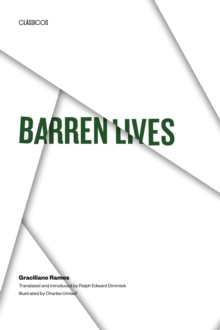
The Politics of Population in Brazil : Elite Ambivalence and Public Demand Paperback / softback
by PETER MCDONOUGH, Amaury DeSouza
Part of the Texas Pan American Series series
Paperback / softback
Description
The population of Brazil increased tenfold, from 10 to over 100 million, between 1880 and 1980, nearly half of this increase occurring since the end of World War II.
The Politics of Population in Brazil examines the attitudes toward population planning of Brazilian government officials and other elites—bishops, politicians, labor leaders, and business owners—in comparison with mass public opinion.
The authors' findings that elites seriously underestimate the desire for family planning services, while the public views birth control as a basic issue, represent an important contribution on a timely issue. A major reason for this disparity is that the elites tend to define the issue as a matter of national power and collective growth, and the public sees it as a bread-and-butter question affecting the daily lives of families.
McDonough and DeSouza document not only the real gulf between elite and mass opinion but also the propensity of the elites to exaggerate this gap through their stereotyping of public opinion as conservative and disinterested in family planning. Despite these differences, the authors demonstrate that population planning is less conflict ridden than many other controversies in Brazilian politics and probably more amenable to piecemeal bargaining than some earlier studies suggest.
In part, this is because attitudes on the issue are not closely identified with opinions regarding left-versus-right disputes.
In addition, for the public in general, religious sentiment affects attitudes toward family planning only indirectly.
This separation, which reflects the historical lack of penetration of Brazilian society on the part of the church, further attenuates the issue's potential for galvanizing deep-seated antagonisms.
As the authors note, this situation stands in contrast to the fierce debates that moral issues have generated in Spain and Ireland. The study is noteworthy not only for its original approach—the incorporation of mass and elite data and the departure from the standard concerns with fertility determinants in population—but also for its sophisticated methodology and lucid presentation.
Information
-
Available to Order - This title is available to order, with delivery expected within 2 weeks
- Format:Paperback / softback
- Pages:190 pages
- Publisher:University of Texas Press
- Publication Date:01/02/1981
- Category:
- ISBN:9780292741409
Information
-
Available to Order - This title is available to order, with delivery expected within 2 weeks
- Format:Paperback / softback
- Pages:190 pages
- Publisher:University of Texas Press
- Publication Date:01/02/1981
- Category:
- ISBN:9780292741409










